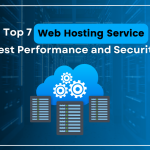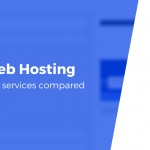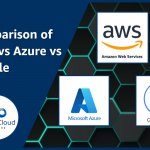In the ever-evolving digital landscape, web hosting plays a pivotal role in ensuring the online presence and success of businesses, organizations, and individuals. With a myriad of options available, navigating the web hosting landscape can be a daunting task. However, with the guidance and insights of industry experts, businesses can make informed decisions to meet their hosting needs effectively. In this article, we’ll delve into expert perspectives and insights on the current state and future trends of web hosting in the United States.
THE EVOLUTION OF WEB HOSTING
Web hosting has undergone significant transformations over the years, driven by advancements in technology, changes in consumer behavior, and shifts in business requirements. From traditional shared hosting to cloud-based solutions and specialized hosting services, the web hosting landscape has become increasingly diverse and complex. Understanding the different types of hosting options and their respective advantages is essential for businesses seeking to establish and maintain an online presence.
SCALABILITY AND FLEXIBILITY
Scalability and flexibility are critical considerations for businesses of all sizes when choosing a web hosting solution. With the unpredictable nature of online traffic and the need for scalability to accommodate growth, businesses must opt for hosting services that offer scalability and flexibility. Cloud hosting, in particular, has gained popularity due to its ability to scale resources on-demand, allowing businesses to adapt to changing needs and fluctuations in traffic seamlessly.
SECURITY AND COMPLIANCE
Security is paramount in the web hosting landscape, with cyber threats posing significant risks to businesses’ online assets and data. Industry experts emphasize the importance of choosing hosting providers that prioritize security measures such as SSL encryption, firewalls, intrusion detection systems, and regular security audits. Additionally, compliance with regulations such as the General Data Protection Regulation (GDPR) and the Health Insurance Portability and Accountability Act (HIPAA) is essential for businesses handling sensitive data.
PERFORMANCE AND UPTIME
Performance and uptime are critical factors that can impact the user experience and overall success of a website. Industry leaders stress the importance of selecting hosting providers that offer reliable performance and guaranteed uptime. Factors such as server speed, network infrastructure, and server location can influence website performance, load times, and responsiveness. Businesses must prioritize hosting solutions that deliver consistent performance and minimal downtime to ensure a seamless user experience for visitors.
CUSTOMER SUPPORT AND SERVICE LEVELS
Customer support and service levels are key differentiators among web hosting providers. Expert opinions highlight the significance of choosing hosting providers that offer responsive and knowledgeable customer support, available 24/7 via multiple channels such as live chat, phone, and email. Additionally, businesses should consider service level agreements (SLAs) that guarantee uptime, response times, and resolution of issues to ensure they receive the support they need when facing technical challenges or disruptions.
COST-EFFECTIVENESS AND VALUE
Cost-effectiveness and value are essential considerations for businesses evaluating web hosting options. While price is a factor, experts advise against making hosting decisions based solely on cost, as cheaper solutions may compromise on performance, security, and reliability. Instead, businesses should focus on the overall value proposition offered by hosting providers, considering factors such as features, scalability, support, and reputation. Investing in quality hosting services can yield long-term benefits and mitigate potential risks associated with subpar hosting solutions.
EMERGING TRENDS AND FUTURE OUTLOOK
Looking ahead, industry experts foresee several trends shaping the future of web hosting. These include the continued adoption of cloud hosting and hybrid cloud solutions, the rise of edge computing for improved latency and performance, advancements in security technologies such as AI-driven threat detection, and the integration of automation and DevOps practices for streamlined operations and faster deployments. Additionally, the growing emphasis on sustainability and environmental responsibility may drive the adoption of eco-friendly hosting solutions powered by renewable energy sources.
CONCLUSION: STRATEGIES FOR SUCCESS
In conclusion, navigating the web hosting landscape requires careful consideration of various factors, including scalability, security, performance, customer support, and cost-effectiveness. By seeking expert perspectives and insights, businesses can make informed decisions and choose hosting solutions that align with their specific needs and objectives. With the right hosting provider and strategy in place, businesses can establish a robust online presence, deliver exceptional user experiences, and achieve success in today’s competitive digital landscape.














